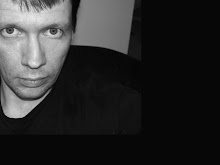
Also in typical Tarantino fashion, the film is divided into five chapters, the first of which opens on a small Dairy Farm in Nazi-occupied France early in WWII. Perrier LaPadite (Denis Menochet) is a Dairy Farmer living a quite life with his three young daughters on his isolated Farm. However, because of persistent rumors that LaPadite is hiding a Jewish family named Dreyfus, German command dispatches Colonel Hans Landa (Christopher Waltz in the best performance I've seen since Javier Bardem played Anton Chigurh), a notorious SS and secret service officer.
Landa has been nicknamed The Jew Hunter for his ruthless, effective methods for finding Jews. LaPadite is indeed hiding the Dreyfuses—beneath the very floorboards where he and Landa chat. Landa’s interrogation unfolds in a measured, gripping exchange that lasts more than 20 minutes, as the pair smoke pipes and sip milk. As played by Waltz, Landa is part cunning bureaucrat, part savvy detective, part heartless killer, part charming socialite. This is an award-worthy turn that’s more critical to the overall narrative than Pitt’s role. Ultimately, Landa wheedles the truth out of LaPadite and his men rain machine gun fire into the floor, killing all the refugees save one. For reasons that are never addressed, Landa allows that lone survivor, named Shosanna (Mélanie Laurent), to escape without ever seeing her face.
In the second chapter we meet the Inglourious Basterds, a ragtag, colorful group of Jewish-American commandos led by Lieutenant Aldo Raine (Brad Pitt), a Tennessee hillsman who’s part moonshiner, part secret agent and negotiator, and 100% Nazi killer. The Basterds have been assigned to drop behind French lines and spread fear and disorder among the enemy by ruthlessly killing as many Germans as possible. To achieve that end, they scalp every German they kill, always leaving one Nazi alive to spread their legend. If ever there was an actor who chewed the scenery in a role, it's Brad Pitt in this part. Raine is hickish and unrefined, a cartoonish man who'd fit well with the hillbillies from 1972’s Deliverance. Listening to him speak Italian is probably the film’s funniest moment.
Starting with the third chapter, the film becomes a revenge story. The narrative turns back to Shosanna Dreyfus, who’s now hiding in Paris under an alias and owns a small cinema, which she claims is inherited from an aunt. Through a chance encounter with a German war hero (Daniel Brühl), who becomes infatuated with her, Shosanna’s cinema becomes the chosen venue for the German propaganda film, A Nation’s Pride, directed by Joseph Goebbels (Sylvester Groth). Most of the German high command will be attending and Shosanna sees a chance for vengeance. She and boyfriend Marcel (Jackie Ido) devise a plan to lock the attendees inside the screening auditorium and burn the theater down using a highly flammable type of movie film.
British Intelligence has learned of the premiere too and, unaware of Shosanna’s plot, they coordinate with the Basterds for their own attack. Furthermore, intelligence learns, Adolph Hitler will also be attending, making the attack vital. The film’s remainder takes a number of unexpected turns and the ending, though baring no resemblance to historical fact, is cleverly executed, bringing the story full circle and providing Pitt a final chance to shine.
Like all of Tarantino’s work, Inglourious Basterds is cobbled together from a variety of influences, the most obvious of which being the old spaghetti westerns of the 60s and 70s. Though the film also pays homage to the 1967 American war classic The Dirty Dozen, this is a war film that doesn’t feel like a war film. Inglourious Basterds defies easy classification. It's subtle and violent, well-written, well-acted and highly absorbing, with a director who's clearly in charge of his vision. The film plays like a fever dream of WWII.
There’s not a weak performance among this cast either, but Christopher Waltz’s performance is, hands down, the finest. Waltz won’t be alone in collecting award nominations though. This is a mesmerizing film from start to finish. I can’t remember the last time two-and-a-half-hours-plus in a theater didn’t feel like two and a half hours. Even with stretches of protracted dialogue, the film breezes along without feeling rushed; by the time the end credits started, I was ready for more. And Inglourious Basterds is dense and adequately complicated enough to merit a second viewing; it’s filled with memorable scenes, brilliant dialogue, and subtle narrative devices that hit like a jackhammer. This is easily the best film I’ve seen all year. Highly recommended.
Score: 9/10
Starring: Brad Pitt, Christoph Waltz, Michael Fassbender, Eli Roth, Diane Kruger, Daniel Bruhl, Til Schweiger, Melanie Laurent, August Diehl, Julie Dreyfus, Sylvester Groth, Jacky Ido, Denis Menochet, Mike Myers, Rod Taylor, Martin Wuttke, Samm Levine, B.J. Novak
Directed by: Quentin Tarantino
Released by: Miramax Films

No comments:
Post a Comment